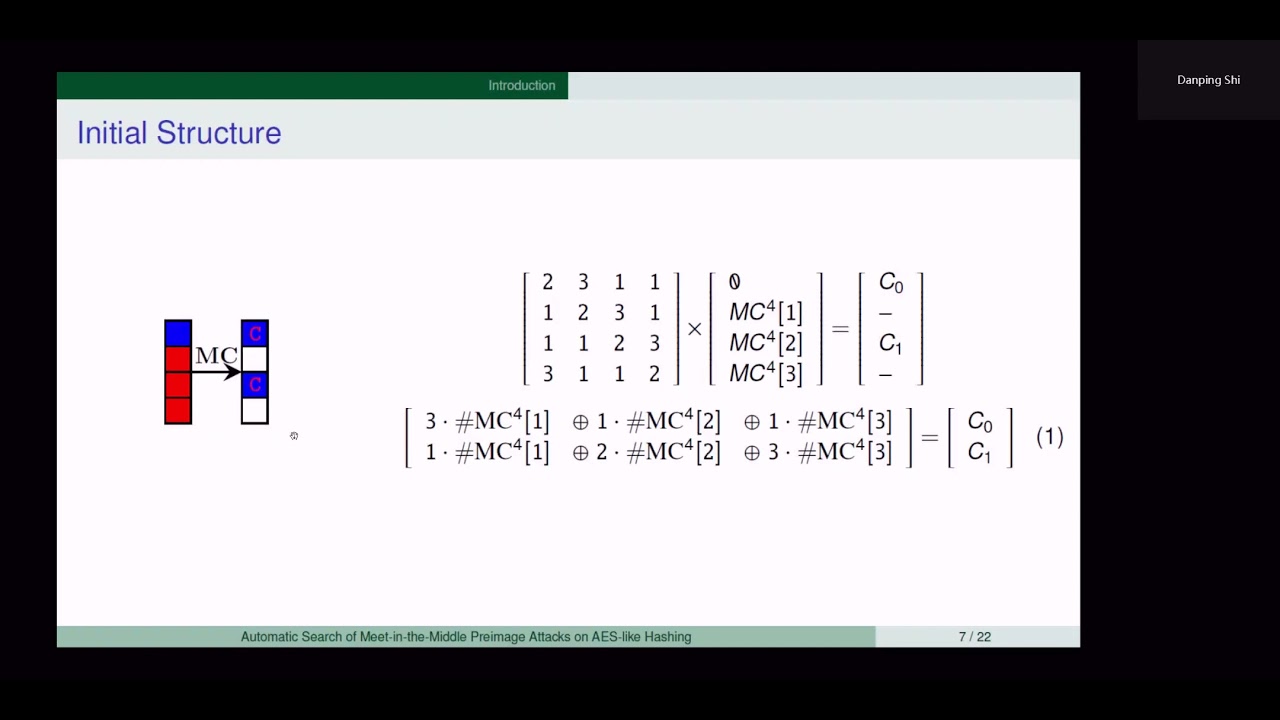Welcome to the resource topic for 2020/467
Title:
Automatic Search of Meet-in-the-Middle Preimage Attacks on AES-like Hashing
Authors: Zhenzhen Bao, Xiaoyang Dong, Jian Guo, Zheng Li, Danping Shi, Siwei Sun, Xiaoyun Wang
Abstract:The Meet-in-the-Middle (MITM) preimage attack is highly effective in breaking the preimage resistance of many hash functions, including but not limited to the full MD5, HAVAL, and Tiger, and reduced SHA-0/1/2. It was also shown to be a threat to hash functions built on block ciphers like AES by Sasaki in 2011. Recently, such attacks on AES hashing modes evolved from merely using the freedom of choosing the internal state to also exploiting the freedom of choosing the message state. However, detecting such attacks especially those evolved variants is difficult. In previous works, the search space of the configurations of such attacks is limited, such that manual analysis is practical, which results in sub-optimal solutions. In this paper, we remove artificial limitations in previous works, formulate the essential ideas of the construction of the attack in well-defined ways, and translate the problem of searching for the best attacks into optimization problems under constraints in Mixed-Integer-Linear-Programming (MILP) models. The MILP models capture a large solution space of valid attacks; and the objectives of the MILP models are attack configurations with the minimized computational complexity. With such MILP models and using the off-the-shelf solver, it is efficient to search for the best attacks exhaustively. As a result, we obtain the first attacks against the full (5-round) and an extended (5.5-round) version of Haraka-512 v2, and 8-round AES-128 hashing modes, as well as improved attacks covering more rounds of Haraka-256 v2 and other members of AES and Rijndael hashing modes.
ePrint: https://eprint.iacr.org/2020/467
Talk: https://www.youtube.com/watch?v=qwKyMyj0n-s
See all topics related to this paper.
Feel free to post resources that are related to this paper below.
Example resources include: implementations, explanation materials, talks, slides, links to previous discussions on other websites.
For more information, see the rules for Resource Topics .
